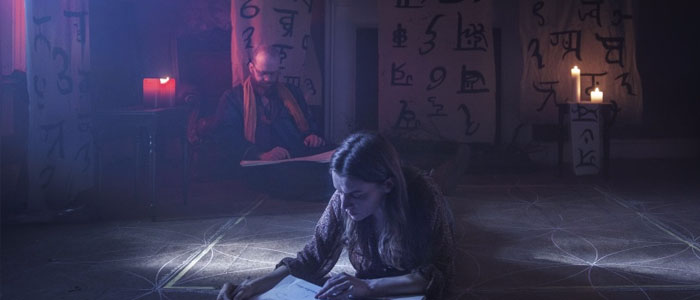
SWEET, SWEET LONELY GIRL
*½/****
starring Quinn Shephard, Susan Kellermann, Erin Wilhelmi, Frances Eve
written and directed by A.D. Calvo
A DARK SONG
**/**
starring Catherine Walker, Steve Oram, Mark Huberman, Susan Loughnane
written and directed by Liam Gavin
by Walter Chaw Self-consciously a throwback to supernatural softcore lesbian exploitation as indicated by the films of Jean Rollin and, specifically, James Kenelm Clarke's The House on Straw Hill (with bits of Pawel Pawlikowski's My Summer of Love in there), A.D Calvo's Sweet, Sweet Lonely Girl has a pretty good feel for time and place, but not much more than that. It's the definition of slight. Adele (Erin Wilhelmi) is a bit of an outcast. Gangly and awkward, she's sent away to be the helper for her mysterious shut-in of an aunt, Dora (Susan Kellermann), at Dora's decaying Victorian manse. One day Adele sees a beautiful girl at the market, Beth (Quinn Shephard), strikes up a friendship with her that evolves into a love affair of sorts, and discovers herself at the same pace that everything begins to fall apart with Dora. It's a recognizable tale of feminine agency told better, directly and indirectly, as recently as Osgood Perkins's February (now The Blackcoat's Daughter) and Robert Eggers's The Witch. Sweet, Sweet Lonely Girl begs comparisons because it begs them explicitly. Its soundtrack is AM Gold featuring choice cuts from Rod Stewart and Crystal Gayle as well as a few nice slices from Starbuck, and the film itself is a mix-tape in every way.
